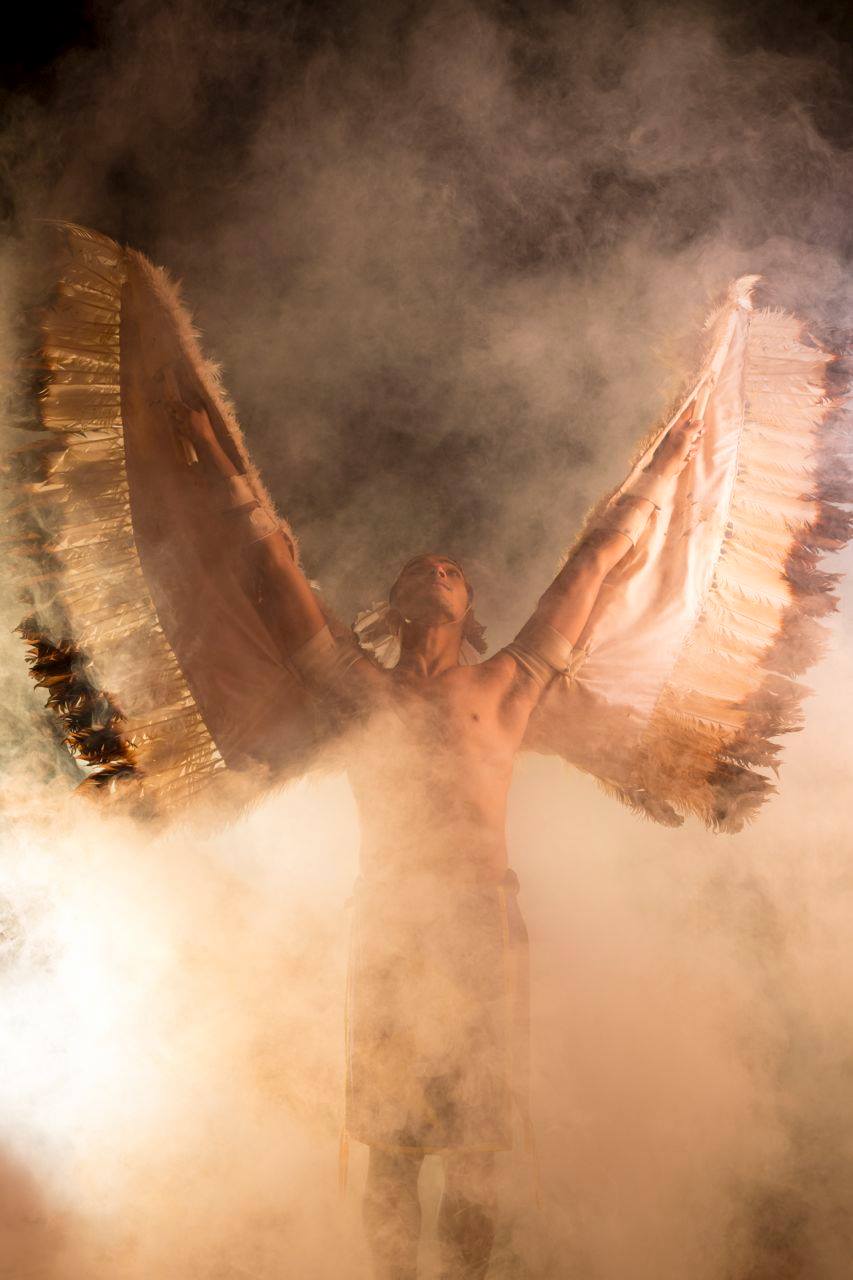As the sun starts its descent over the Great Smokies, an amphitheatre in Cherokee comes to life. The outdoor setting is perfect on this late summer evening filled with the sounds of birds, which will soon be replaced by frogs, crickets, and other nocturnal murmurers.
Unto These Hills, a play about the history of the Cherokee people that begins with their first European encounter (with Hernando de Soto), has been performed here since the summer of 1950 at the Mountainside Theater. It's the third longest-running outdoor performance in the country, but the show has undergone substantial revision throughout the years. The 2017 season marks the play's return to a version closer to its original script, penned by Kermit Hunter, but, according to Cherokee's website, "updated for cultural sensitivity and extra stage drama."
Distilling hundreds of years of history challenges even the best playwright, so in that sense, the play is already an impressive feat. And despite the added "stage drama," it's unequivocally and unapologetically family friendly. The play has been seen by over six million people, in part due to the stamp of approval it receives from parents, teachers, and camp counselors. When we visited, there were many children in the audience, and they were impressively quiet, taken in by the play's story and its message.
That message, in one sense, concerns the interconnectedness of all human beings, and, beyond that, with all living beings and with the earth itself. But the play doesn't eschew hard truths and bitter losses to deliver a glib, kumbayah message of oneness. The second half, especially, is impressively dark and honest about the betrayal of the Cherokees by President Andrew Jackson and his "white men," who descend upon the land of the Eastern Band of the Cherokee to take pretty much whatever they can get.
The characters, given their number and the length of the time period in question, are compelling, with the tribal leader Tsali emerging as a central protagonist. Tsali, who was apparently left out of a 2006 rewrite of the play, gave his life in 1835 so that members of the tribe hiding out in the mountains to avoid the forced migration to Oklahoma could stay. The moment is rendered poignantly in the play, as Tsali is escorted off stage by members of his own tribe, who he has requested should fire the killing shots to him and his sons.
The play leaves out a lot of details, including Tsali's status as a prophet who foretold an apocalypse for the tribe, and at times it verges—and nearly topples into—total Disney territory, complete with moments of overacting that are most likely due to the corniness of the script, particularly in its first third or so, before characters really get fleshed out and are able to exhibit some complexity. These moments—and anytime the recorded narrator, who frustratingly refers to Cherokee cultural traditions as "primitive" several times, speaks—are when the play feels most like a product of the 1950s.
Where the play truly shines, though, is in the choreographed sections of music and dance, spearheaded by a particularly talented performer who steals the show as part of the "primitive" (ahem) Eagle Dance. It's a gorgeous expression of creativity and cultural tradition that I could have used even more of. Another enjoyable segment depicts a traditional, and very colorful, Cherokee wedding celebration.
 Source:
Source: Unto These Hills
on Facebook
The acting is top-notch. I particularly enjoyed the villainous white prospectors and their ilk, who show up occasionally to cheat, swindle, and look at other characters deviously. I was also impressed with the large sets, which are rolled on and off stage through massive doors.
Unto These Hills is a perfect accompaniment to a day spent enjoying Cherokee's cultural offerings, including the
Museum of the Cherokee Indian, the
Oconaluftee Indian Village, and the fabulous
Qualla Arts and Crafts Mutual Co-op. The show, despite (or perhaps because of) some loud pyrotechnics, is suitable for young children ages 3 and older.
Tickets are $20 for general admission and $23 for closer assigned seating, with an additional $3 for rain insurance. Get their early to enjoy the gorgeous space and the pre-show entertainment, which includes traditional music and storytelling and was one of my favorite parts of the whole night. The play runs approximately two hours and includes an intermission.
Performances are daily (except for Sundays) through August 19 at 8 p.m. The 2018 season kicks off next June. If you go next weekend, stick around for the
Cultural Eclipse Celebration on Sunday and Monday.